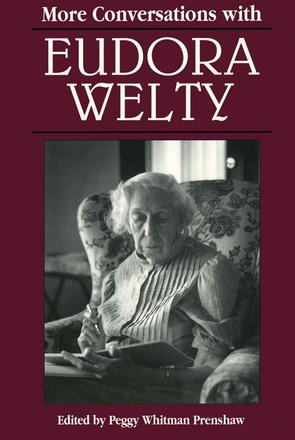
More Conversations with Eudora Welty
The second collection of interviews with the acclaimed Mississippi writer
Description
This book of conversations with one of America’s most revered writers extends the firsthand account of Eudora Welty’s life and work from the early 1980s to the present and supplements Conversations with Eudora Welty, which novelist Anne Tyler said brought her “pure pleasure. ”
These interviews include many that refer to Welty’s memoir, One Writer’s Beginnings, and greatly amplify the picture of her personal life that emerged from the earlier collection of interviews. She reminisces here about her parents, her childhood and schooldays in Jackson, Mississippi, and her sojourns in New York City. She speaks of gardening, travel, friends, and writers—both of contemporaries she had known as friends or associates and those she has never met, except through their books. One whose presence and influence she never fails to mention in conversations about admired predecessors is Anton Chekov. Others whose names recur frequently in these interviews are her friends Katherine Anne Porter and Elizabeth Bowen.
Here too Welty answers questions about her photographic work and about the photographic images she recorded in the 1930s. With her interviewers, she also assesses changes she has witnessed during her lifetime—changes in the southern landscape, southern society, southern writing. She talks about her own experiences with aging, the inevitable loss of friends, and the waning of physical vitality. She replies to queries about specific characters and settings in her work—questions about origins, sources, and real-life counterparts. She reveals some of her compositional designs in the writing of Losing Battles and The Optimist’s Daughter and discusses the significance of the Delta region as the setting for The Golden Apples. Her lifetime interest in local details—names, customs, and tales, such as those that show up in Mississippi country newspapers and farm journals—has long been evident in her stories, and her she recalls them with evident pleasure.